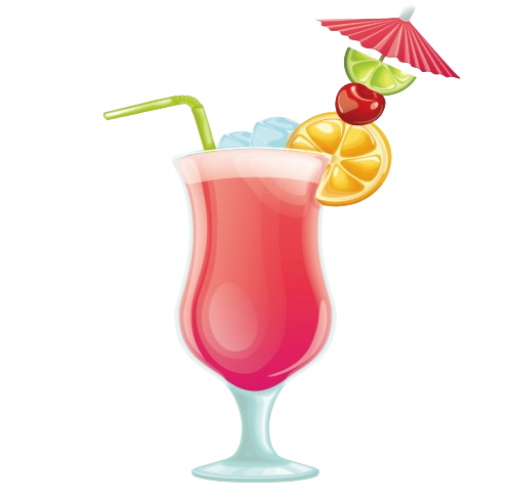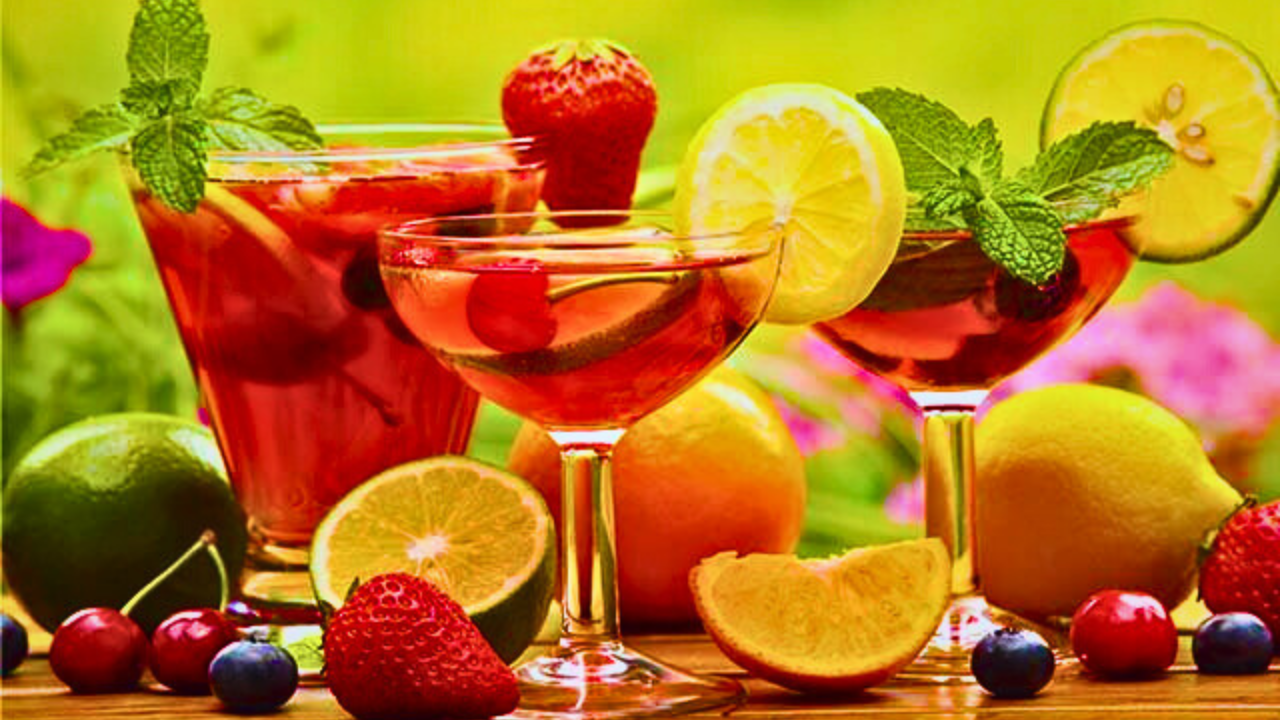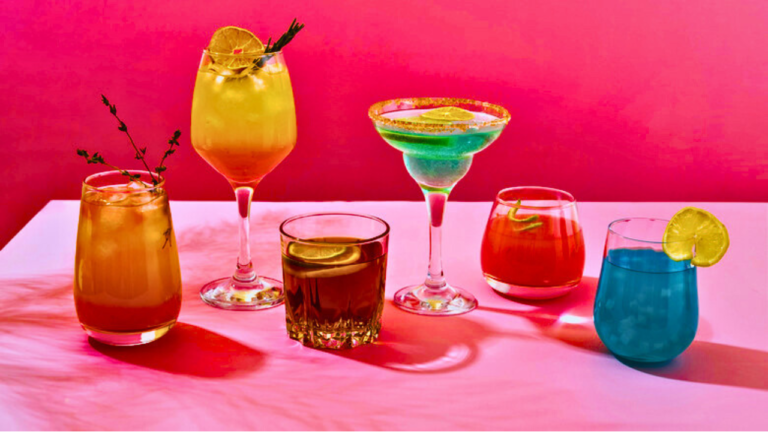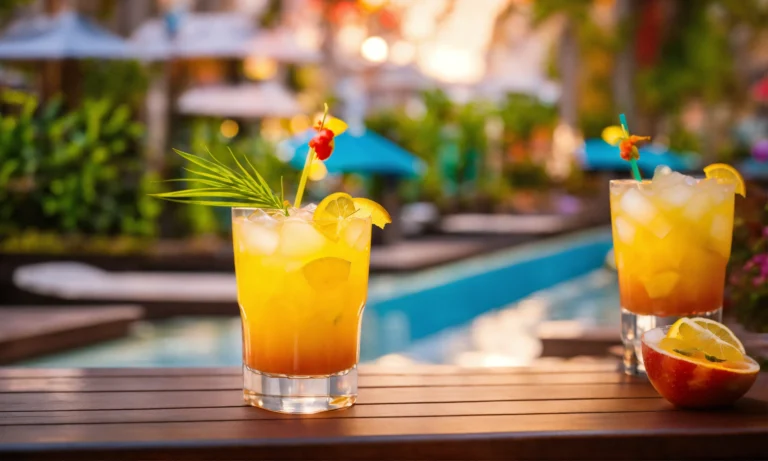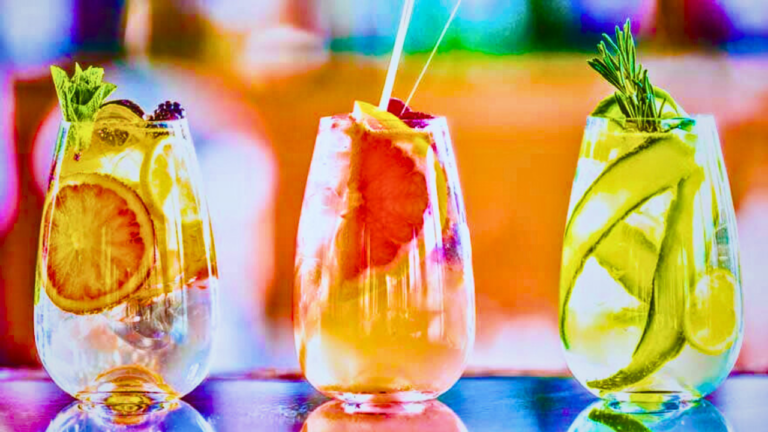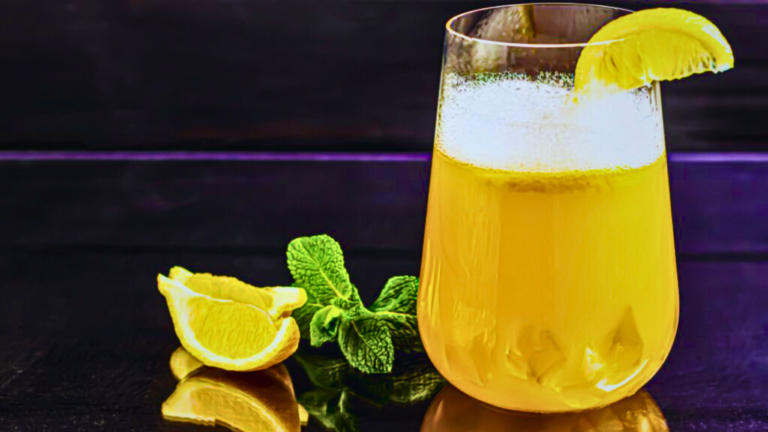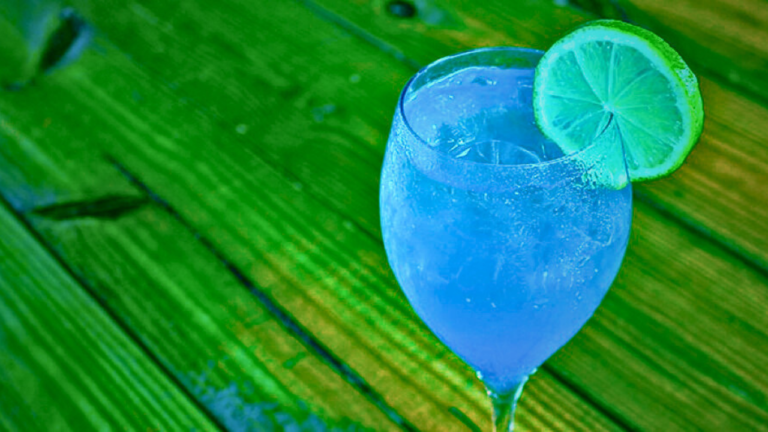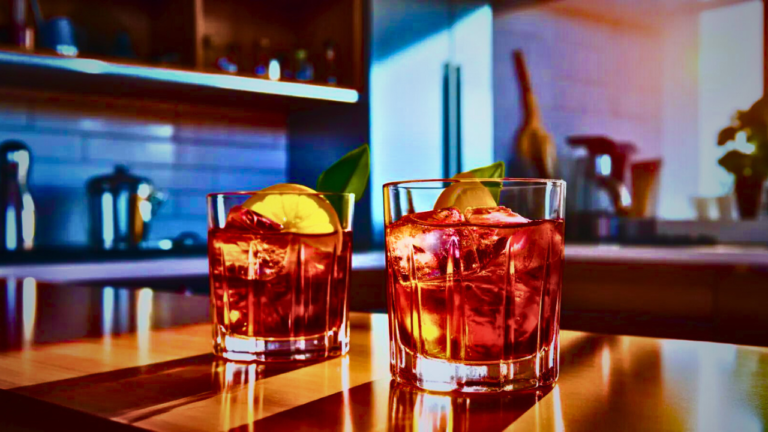Which Juice Is Best For Cocktails?
In the spirited universe of cocktail creations, the role of juice cannot be underestimated. Some might argue it’s a formidable aspect of nearly all mixtures, contributing a distinct layer of fruity goodness.
As a discerning connoisseur of alcoholic concoctions, discovering which juice fits the cocktail bill best can be an enlightening journey. This in-depth exploration probes the captivating world of cocktail juices, unearthing which ones signal a satisfying sip or a regrettable gulp.
The cocktail’s allure, to a large extent, is largely intertwined with the juice component. Whether it’s the refreshing burst of citrus, the deep sweetness of apple, or the tropical hint of pineapple, the juice often sets the scene and tone for your drink. It’s more than just a filler or an accompaniment; it’s a cardinal player that defines the cocktail’s DNA.
“The juice in a cocktail is like an orchestra conductor. It sets the rhythm and pace for the other elements, creating harmony or dissonance as needed”, John Thompson, Renowned Mixologist.
- Citrus juices like lemon or lime lend a zesty kick that brightens up seemingly dull mixtures.
- Tomato juice, most famously employed in a Bloody Mary, is the protagonist that adds an earthy, savory dimension.
- Meanwhile, cranberry juice brings a unique bittersweet profile that balances the sweetness and sourness just in the right measure.
- Then there are exotic contenders like passion fruit or lychee juice, bringing an unexpected twist to the tale.
After delving into the specifics of popular cocktails, common types of juices used in mixes, and expert juice recommendations, it becomes palpable that the selection of juice has deep implications for the finished product. As we pour through these juicy details, an exciting tapestry of liquid artistry unravels before us.
Read also: Why Are Mixed Drinks Called Cocktails?
What are some of the most popular cocktails that require juice?
Among the countless arrays of cocktails that we find globally, a significant number rely heavily on fruit juices to influence their unique taste and aesthetic appeal. Here is an overview of some of the famed cocktails that utilize juices as an integral part of their makeup:
- The Cosmopolitan: Charismatic to the core, this cocktail is prominently known for its cranberry juice content, which gives the drink its enticingly pink hue. The juice is mixed with vodka, triple sec, and a hint of lime, making it a staple at social gatherings.
- The Tequila Sunrise: Delightfully simple in construction yet remarkably artistic in presentation, the Tequila Sunrise aptly takes its name from its sunrise-like gradient, courtesy of a combination of orange juice and grenadine.
- The Mai Tai: A favorite among rum aficionados, this tropical cocktail often features pineapple and orange juice in concert with light and dark rums, curacao, and orgeat syrup.
- The Screwdriver: This classic cocktail is as straightforward as they come—a mix of vodka and orange juice. However, depending on the quality and sweetness of the juice, the screwdriver can be a masterpiece in its simplicity.
- Moscow Mule: A refreshing cocktail commonly served in a copper mug. It’s made with vodka, ginger beer, and lime juice. While lime is more of a citrus than a juice, its integral role results in a drink that’s both tart and sweet, yielding balanced flavors sure to entice any enthusiast.
Keep in mind, the success in creating these favored cocktails often relies on the quality of the juice used.
Fresh, high-quality juice can significantly influence the taste and overall experience of the cocktail.
What types of juice are commonly used in cocktail mixes?
In the dynamic world of cocktails, where the constant discovery of flavors and aesthetics shapes this intriguing multiverse of drinks, a wide spectrum of juices delights both mixologists and cocktail lovers alike. Juices do not merely contribute to the aesthetic appeal of cocktails; rather, their role is profoundly influential in enhancing or balancing flavors, providing much-needed acidity, and even determining the overall mouthfeel or texture of cocktail mixes.
Among a plethora of appealing beverage compounding elements, certain juices often claim the limelight in many notable cocktail recipes. So, let’s now plunge into this flavorful melodrama.
- Citrus Juices: Undeniably, citrus is the bedrock of many cocktail mixes. The triumvirate of lime, lemon, and orange juice is the primary player. Bright and refreshing, these juices add the necessary tang and acidity to cocktails. From the iconic Margaritas banking on lime’s zestiness to the Screwdrivers accentuating vodka’s neutrality with refreshing orange juice, these juices form the heart of many classic and modern mixes.
- Pineapple Juice: With its tropical allure, pineapple juice adds both sweetness and acidity, striking a harmonious balance in tropical or vacation-inspired cocktails. The multifaceted juice even lends some creaminess when shaken well, an aspect flaunted by famous cocktails like Pina Colada.
- Tomato Juice: While not conventionally sweet or tart, tomato juice is a cornerstone in savory or umami cocktails. Predominantly featured in the Bloody Mary, this unexpected hero contributes to a remarkable’meal in a glass’ appeal with its dense texture and savory notes.
- Apple Juice: Apple juice offers the gentle sweetness and familiar, delicate flavor profile that can blend well with a variety of spirits. Cocktails like the Appletini utilize the juice’s crisp taste to deliver surprisingly smooth and aromatic mixes.
Although these common juices form the primary canvas upon which numerous cocktail narratives are painted, the beverage industry’s inventiveness implores the use of unconventional juices as well. Think of cranberry juice’s tart touch in a Cape Codder or the distinct earthiness beetroot juice can add to a bespoke mix.
Read also: Do Jack Daniels Country Cocktails Have Whiskey In Them?
How does the choice of juice affect the taste and appearance of the cocktail?
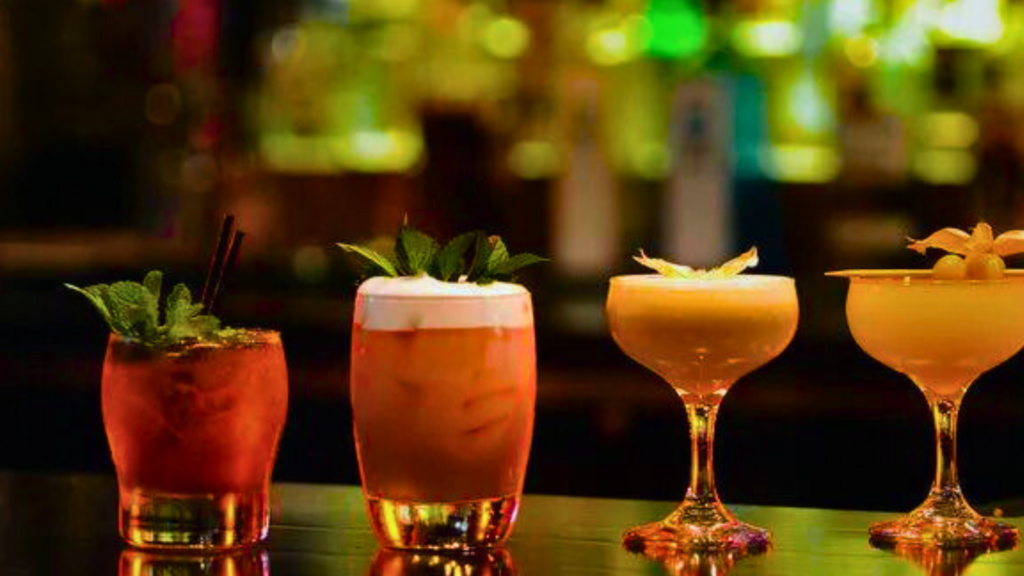
The choice of juice can essentially make or break a cocktail—not only does it significantly influence the taste, but it also significantly affects the visual appeal as well. Juice choice, therefore, should not be an afterthought but rather a deliberate and calculated decision that complements the overall cocktail mix.
Taste-wise, a juice imparts much of the cocktail’s primary flavor. The flavor can range from sweet to tart, zesty to mild, depending on the specific juice in use. Tropical juices like pineapple and coconut, for example, can lend a sweet, refreshing profile, while citrus juices such as lime, grapefruit, or orange can provide a tart, vibrant taste. These flavors, in turn, can balance or enhance the particular alcohol in the mix—an essential interaction we will explore in detail later on.
Furthermore, juices can also contribute to the cocktail’s acidity, which can lift and balance a cocktail’s flavor. Orange and pineapple juices have a low acidity level, which offers a more mellow and rounded flavor. On the other hand, lemon and lime juices are more acidic, bringing a sharp, zesty taste—a quality often desired in cocktails like Margaritas or Whiskey Sours.
Apart from the taste, juice choice significantly affects a cocktail’s appearance. The color from the juice can make the cocktail more enticing and visually pleasing, adding another layer of enjoyment for the drinker.
For instance, tomato juice gives a Bloody Mary its characteristic red hue, cranberry juice lends a blush color to a Cosmopolitan, and orange juice brings about a sunrise effect in a Tequila Sunrise.
The texture of the juice is another characteristic to consider. Some juices, like orange or pineapple juice, can lend a slightly pulpier, more substantial texture to a cocktail, while others, like apple or cranberry juice, offer a clearer, more refined viscosity.
In conclusion, juice choice is a pivotal aspect of the art of cocktail making. It plays a major role in defining the cocktail’s taste profile, visual appeal, and even texture—points that seasoned mixologists deeply understand and never underestimate.
What are some expert recommendations for juices in cocktail mixes?
In the realm of mixology, experts often bring an inventive spirit to the table, combining the art of tradition with a dash of creativity. Their juice recommendations for cocktail mixes are a wealth of expert knowledge that you’ll appreciate as you experiment with your own mixtures. Here are a few insightfully suggested juices that can add subtlety, complexity, or an unexpected twist to your cocktails.
“Layering flavors is the essence of creating intriguing cocktails”, says renowned mixologist Bob Peters. “Juices are the secret to achieving this layered complexity.”
First and foremost, freshly squeezed lemon juice is universally recommended by cocktail experts . The acidic tang of lemon creates a balance that can tackle the sweetness of other ingredients, always adding a refreshing edge to the cocktail. Its versatility makes it a staple in many famous alcoholic concoctions, from the simple Gin and Tonic to the more elaborate Whiskey Sour.
Grapefruit juice, another citrus fruit, also gets a nod from experts. Especially pink grapefruit, with its slightly sweet tones, is a nice complement to numerous spirits, and it can give your cocktails a pleasant blush hue. The classic Greyhound and the Hemingway Daiquiri are just a couple of examples of cocktails that proudly feature grapefruit juice.
And let’s not forget tomato juice. Known best for its starring role in the Bloody Mary, tomato juice delivers a savory base that allows a myriad of spices and condiments to shine. This distinct, strong flavor profile is much loved for brunch cocktails and can be a delightful surprise in a glass when wielded correctly.
Interestingly, pomegranate juice has begun to receive considerable attention from mixologists. This jewel-toned juice delivers a unique, sweet yet tart flavor that pairs beautifully with both clear spirits like vodka and richer spirits like whiskey. When handling this, remember, a little goes a long way.
“Expect the unexpected,” says Jillian Vose, beverage director at The Dead Rabbit in New York City. “Don’t be afraid to experiment with lesser-known juices like prickly pear or gooseberry. They can introduce a unique note to a cocktail.”
On a concluding note, the expert opinions seized above illustrate the vibrant canvas of flavors juices offer. Remember, while these juices are tried-and-true staples, with cocktail making, there is always room for experimentation. So stock up, get experimental, and let the mixer in you craft the next perfect cocktail.
Are there specific juices that pair well with certain types of alcohol?
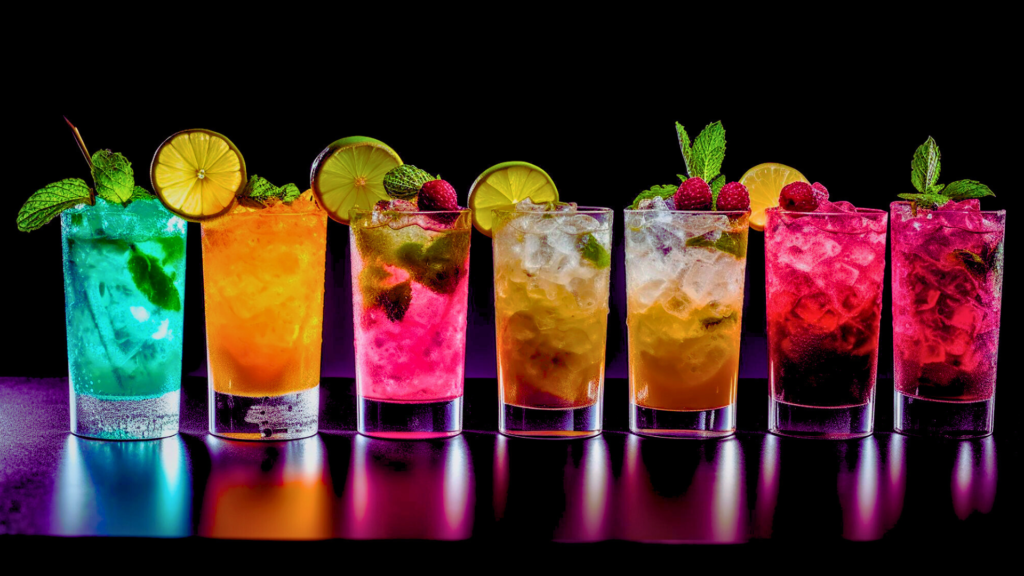
In the realm of cocktail creation, one becomes quickly aware that not all juices are created equally when it comes to pairing with various types of alcohol. It’s an art to master, an interplay of taste profiles that, when woven together with skill and knowledge, gives rise to a symphony of flavors that can transform a simple drink into a spectacular one.
Lemon and lime: The all-star player, citrus juice, is viewed with immense admiration in the cocktail world. The brightness afforded by lemon and lime juice often acts as the perfect antidote to the rich nature of whiskies and rums. For example, the powerful sourness in a whiskey sour or a daiquiri lends a harmonious balance to these robust spirits. The key here is balance; a harmonious cocktail always marries its various components without one overpowering another.
Orange juice: Orange juice, on the other hand, with its much higher sugar content and mild acidity, proves to be an excellent partner for lighter spirits such as vodkas and tequilas, as evident in a refreshing Tequila Sunrise or a delightful Screwdriver.
Pineapple juice: An often underappreciated contender in this arena is pineapple juice. This tropical delight lends its sweetness and a faint tartness to a variety of spirits, but finds a special friend in the form of rum. The classic Piña Colada, a rum-based cocktail, wouldn’t be the tropical sensation it is without the inclusion of pineapple juice.
It’s not just about the classics, though. We’re in an era of creative cocktails, a moment in time where boundaries are pushed relentlessly. Creative minds are experimenting with less conventional juices like beetroot, carrot, or even bell pepper to conjure up unique, unprecedented combinations.
Learning to pair alcohols and juices is a journey full of discovery and delight. It’s an adventure we’d urge everyone to embark on, to experience sensations that tickle the taste buds and excite the palate.
Read also: Why Strain Cocktails?
Conclusion
In conclusion, one could assert that the integration of juice into cocktail mixes is an art that requires deep knowledge and appreciation of both the juice and the spirits involved. The choice of juice in a cocktail can drastically impact the overall taste, appearance, and enjoyment of the drink. We’ve seen a vast range of different juices used in creating both classic and novel cocktails, unveiling the creative flexibility that juice provides in the realm of mixology.
Whether it’s citrus-based juices like lemon, lime, or grapefruit, sweeter choices such as pineapple or cranberry, or even more exotic options like pomegranate or tomato, the juice plays a crucial role. It not only adds flavor but also influences the color and consistency of the drink, thereby enhancing the drinking experience both visually and texturally.
“Finding the perfect harmony between the juice and the spirit is the key to crafting an unforgettable cocktail.”
Just like a symphony, where each disparate note comes together to create a harmonious musical piece, the relationship between the chosen juice and the type of alcohol used in a cocktail is a dance of taste and balance.
The experts’ recommendations shared herein shed light on the importance of juice selection in creating a perfect cocktail and underline the inherent adaptability of this ingredient.
As we move forward, we may witness the entry of new, unusual fruit juices into the cocktail scene. Their unique taste profiles will catapult us into uncharted territories of beverage creativity. But in the end, what truly matters is not only the kind of juice used or the type of alcohol it’s paired with, but also the skill, knowledge, and passion of the mixologist crafting the drink.
In the end, do remember that while this information provides a general guide, the ‘best’ juice for cocktails can often be subjective. It boils down to personal preference, creativity, and a willingness to experiment with different flavors and combinations. So venture forth in discovering your own unique cocktail blends, using the fruit of knowledge that you’ve now obtained. Happy mixing!
FAQs
Are fresh juices superior to store-bought ones for cocktail mixes?
While the convenience and cost-effectiveness of store-bought juices can’t be disputed, fresh juices are often preferred for their clean, crisp flavors that can elevate a cocktail. They are free from preservatives and added sugars that might interfere with the balance of flavors in the cocktail.
Can I use a combination of different juices in a single cocktail?
Indeed, you can. Creativity is part and parcel of cocktail creation. Combining juices can result in a unique flavor profile, adding complexity and depth to the drink. However, ensure that the flavors complement each other and the alcoholic base.
Is it necessary to strain the juice before mixing it into a cocktail?
Most often, it depends on your preference. Straining the juice can remove the pulp and create a clear, smooth cocktail. However, some cocktail recipes might call for pulp for added texture and flavor.
How does the juice ratio affect the taste of a cocktail?
The juice-to-alcohol ratio is crucial to creating a well-balanced cocktail. Too much juice might dilute the taste of the alcohol. Conversely, too little juice can make the cocktail too potent. Practice and balance are key when going about ratios.
Is it essential to chill the juice before mixing it into a cocktail?
Chilling the juice beforehand can help maintain the drink’s temperature without requiring too much ice, which might water down the cocktail. However, it’s not a hard-and-fast rule and often depends on personal preference and the specific cocktail recipe.
Is it necessary to add sweetener when using juice in cocktails?
The need for a sweetener largely depends on the nature of the juice and personal preference. When using tart juices such as grapefruit or lime, a sweetener can be beneficial. However, if the juice is naturally sweet, like orange or pineapple, additional sweeteners might be unnecessary.
How do I select the best juices specifically for cocktails?
Selecting juices for cocktails requires consideration of flavor, freshness, sweetness, and acidity. Aim for juices that offer a balance of these factors. Taste the juice beforehand to ensure it complements the alcohol and doesn’t overpower it.
Why is citrus juice so popular in cocktails?
Citrus juices, such as lemon and lime, are popular in cocktails due to their tartness. This acidity can balance the sweetness and potency of other cocktail ingredients, resulting in a balanced and refreshing drink.
Can using different juices alter the color of my cocktail?
Absolutely. The color of the juice will definitely influence the appearance of the cocktail. This can be used to your advantage when creating visually appealing cocktails—think a sunrise effect with different colored layers.
What is the role of the juice in a cocktail?
In a cocktail, juice serves multiple purposes. It can act as a diluent, reducing the alcohol’s strength. It can also provide acidity, balance out sweetness, and enhance flavors. Lastly, the juice contributes to the overall visual appeal with its color.

Hello, friends! I’m Tom Elba, the driving force behind cocktailscape.com, your virtual hub for all things cocktails. If you have a passion for mixology or simply enjoy sipping on a well-crafted drink, then you’ve landed in the right place.
At Cocktailscape, I’m dedicated to sharing my love for the art of cocktail-making through tantalizing recipes, expert tips, and vibrant stories from the world of mixology. Whether you’re a seasoned bartender or an enthusiastic home cocktail enthusiast, there’s something here for everyone.
From classic concoctions like the Old Fashioned and the Martini to innovative twists and modern creations, I’m here to inspire you to shake, stir, and sip your way through a world of flavor.
But Cocktailscape is more than just recipes—it’s a celebration of culture, creativity, and community. I delve into the history behind iconic cocktails, explore emerging trends in the industry, and spotlight talented bartenders from around the globe.
So whether you’re looking to expand your cocktail repertoire, host the perfect soirée, or simply unwind with a refreshing drink after a long day, Cocktailscape has got you covered. Cheers to endless possibilities and unforgettable sips—let’s raise a glass together at cocktailscape.com!
